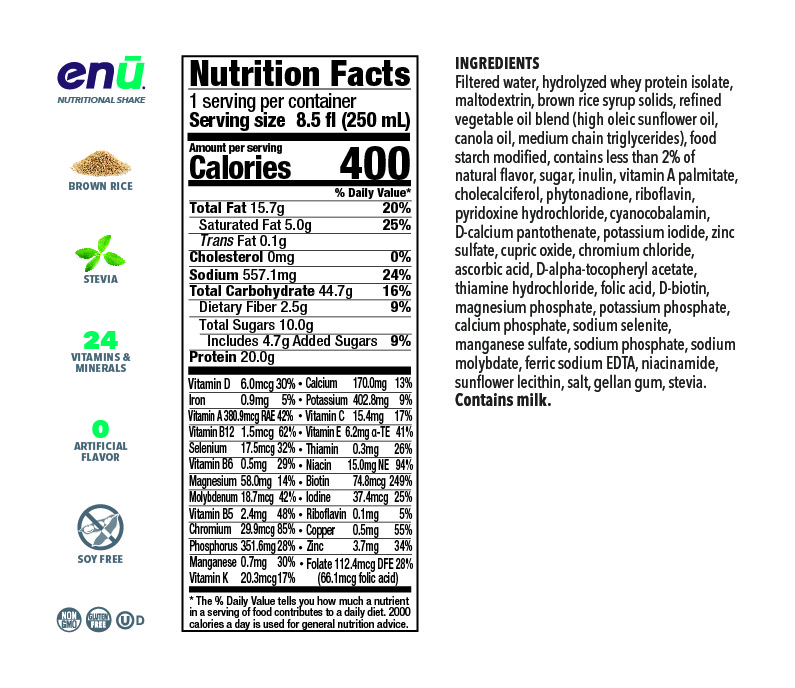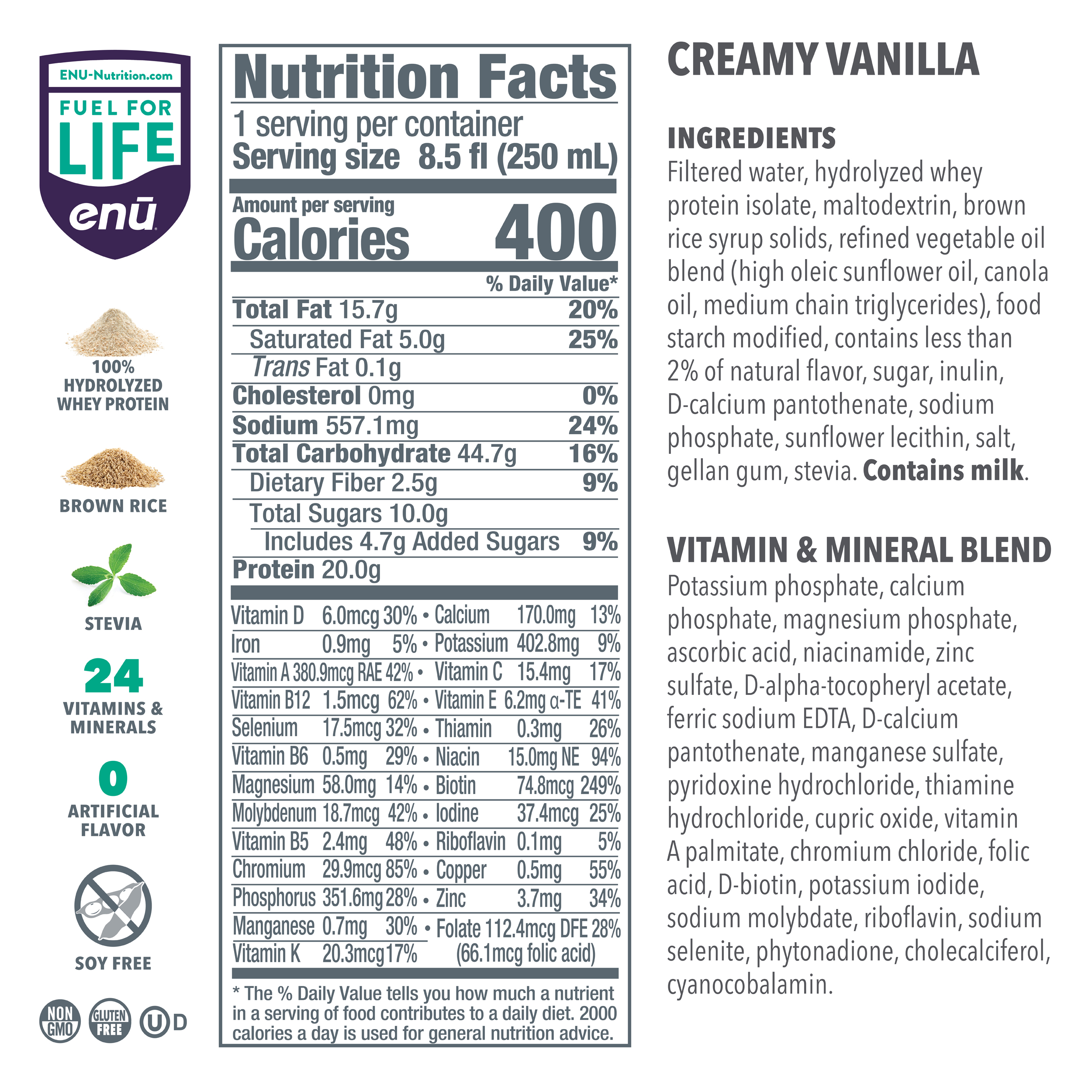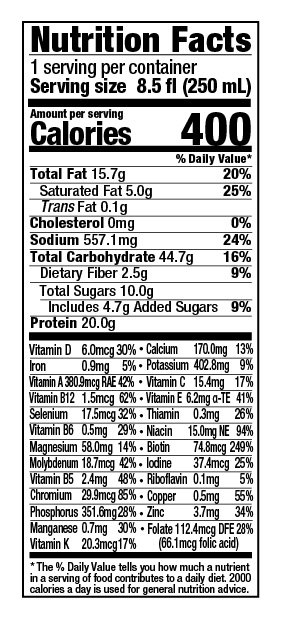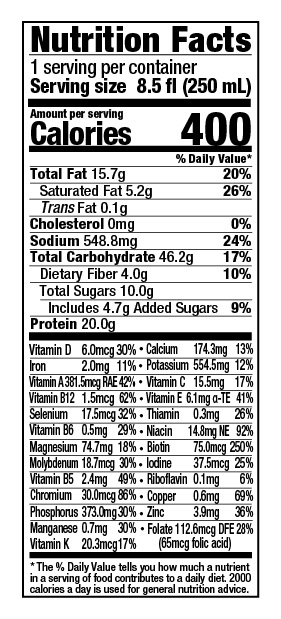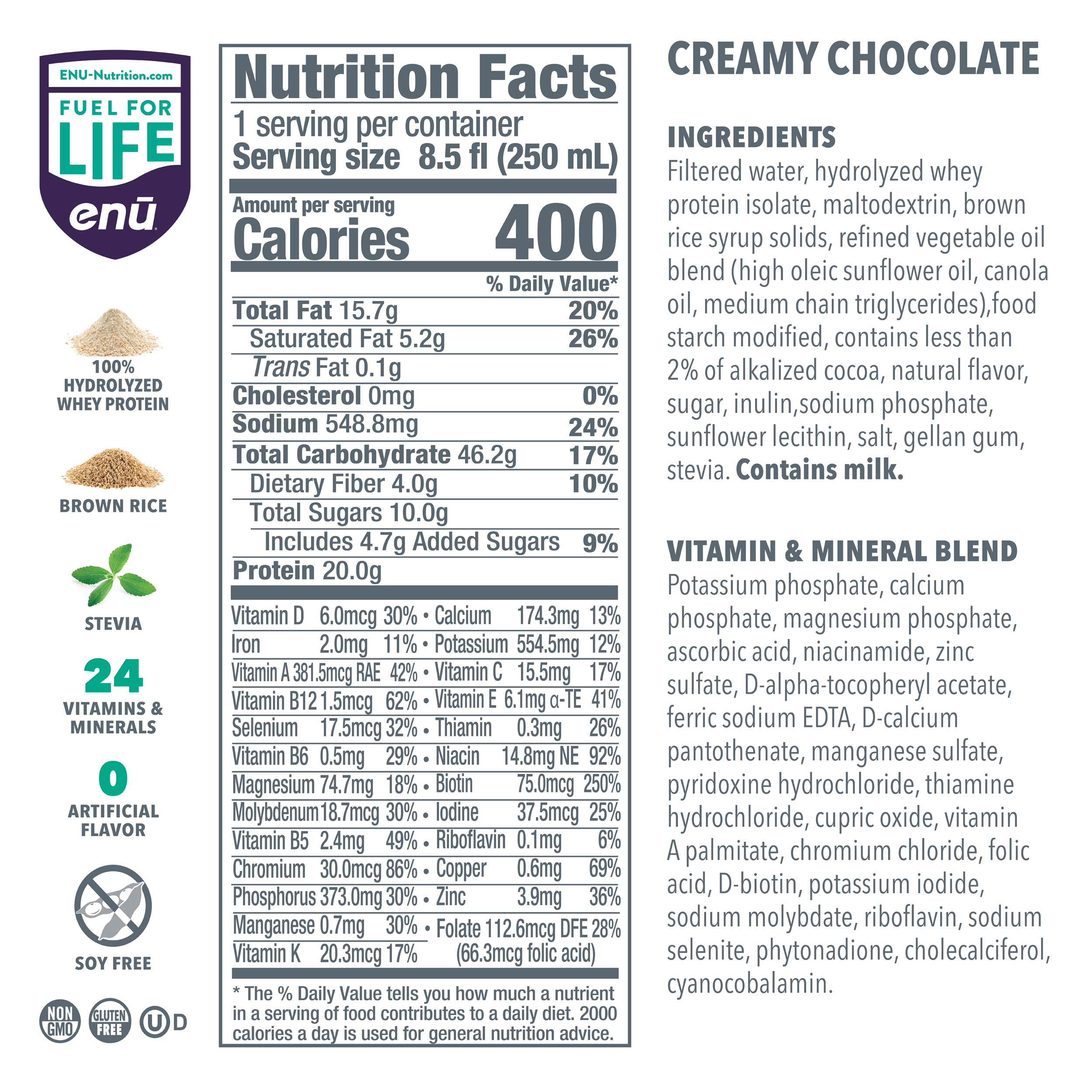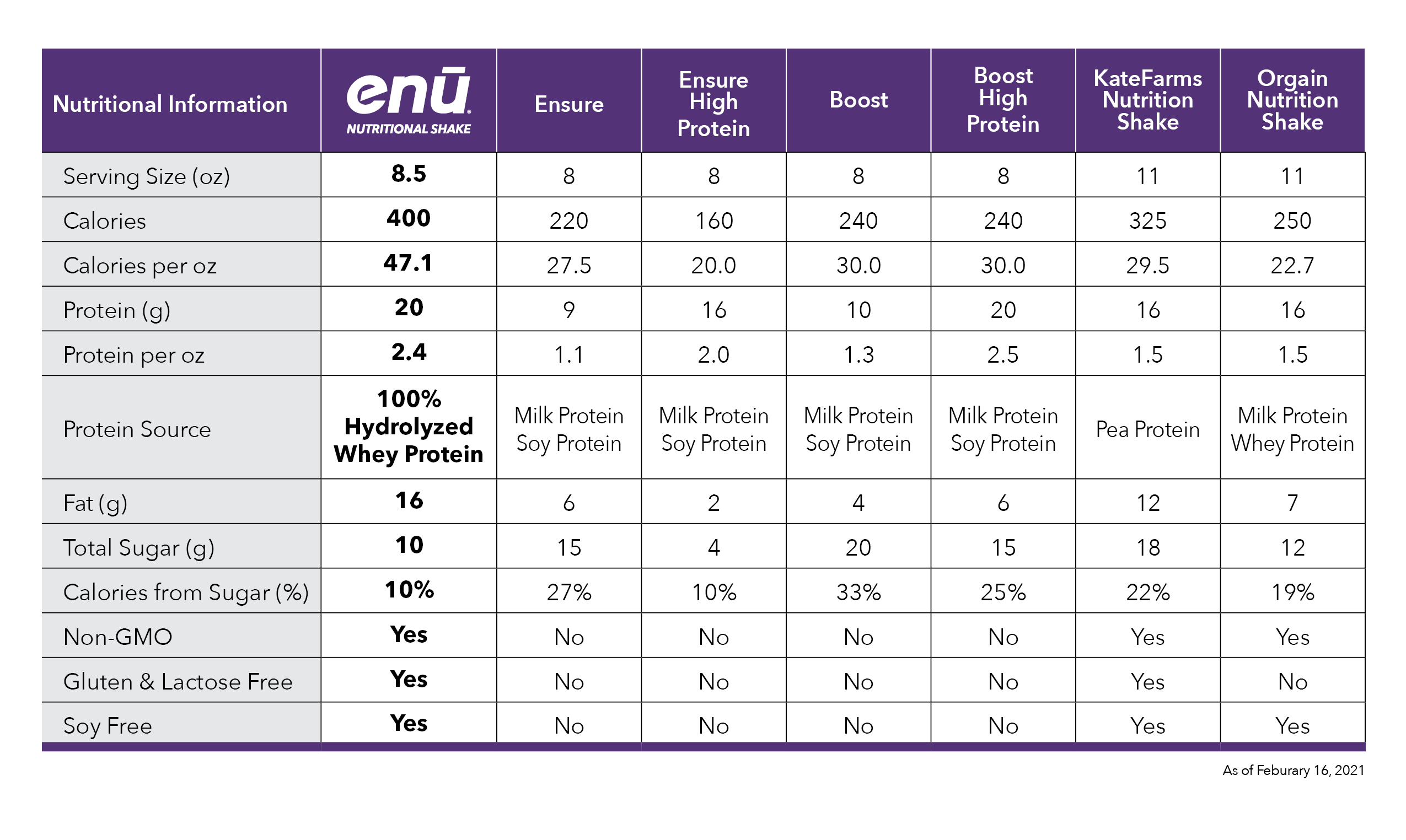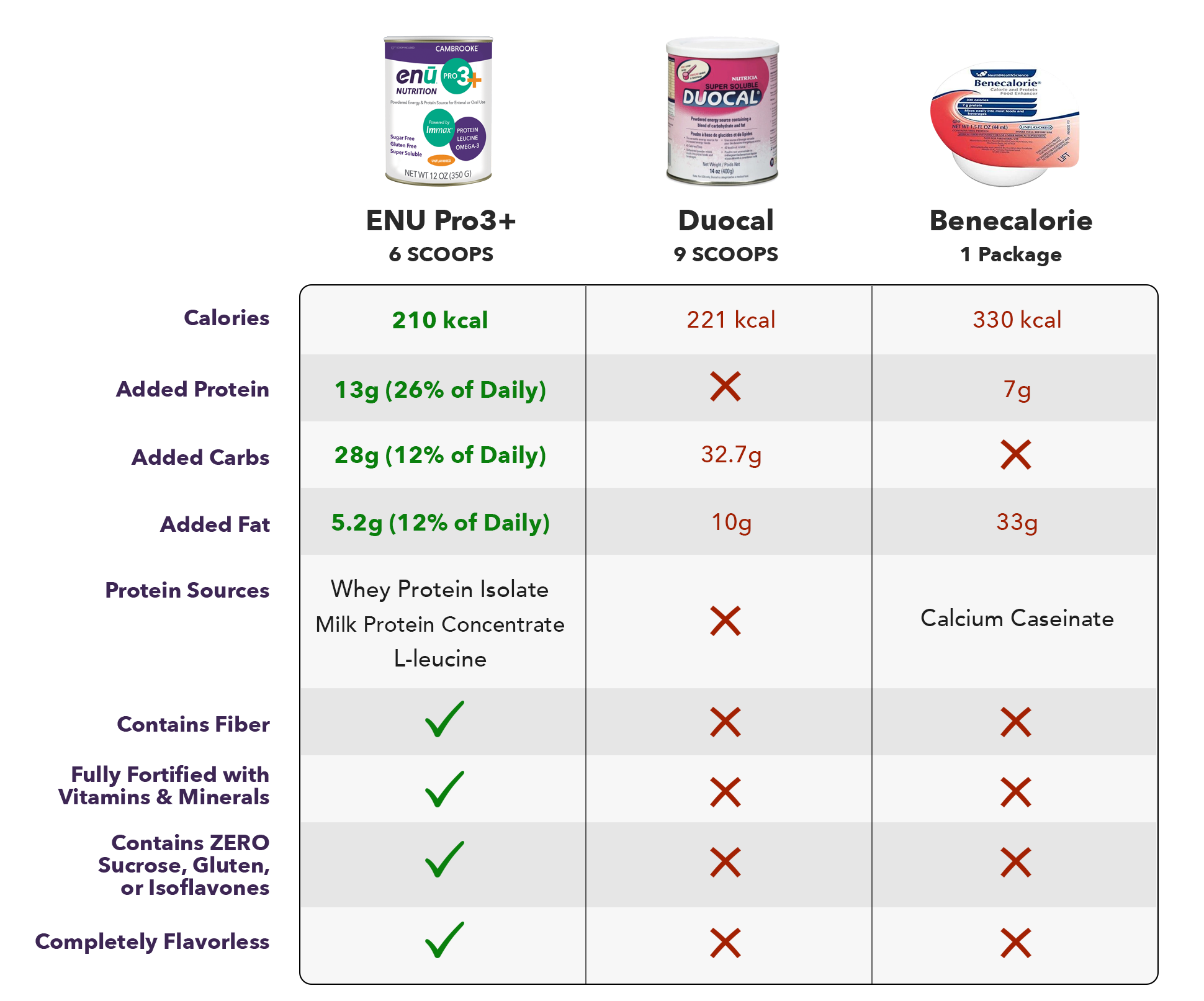
Get a FREE
ENU Intro Pack*
*Just Pay $2.00 Shipping

Why Can’t You Gain Weight?
While many people are familiar with the difficulties associated with losing weight, those trying to gain weight often have just as much trouble meeting their goals. For a lot of these people, the part of the issue is that it can be tough to figure out exactly why they can’t seem to add any mass to their frame. Conventional wisdom suggests that simply eating more should lead to the increase in weight they desire, but this method doesn’t always work. If you or someone you know has been struggling to maintain or gain weight, it’s important to ask the question, “Why can’t I gain weight?” To get some answers, keep reading as the nutrition specialists at ENU discuss this very question.
How You (Usually) Gain Weight
Under normal circumstances, a person looking to gain weight can do so using a simple formula: calories consumed minus calories used by the body. The final result of this equation is the net calorie gain or loss you have at the end of the day, and depending on the size of that final number, your rate of weight change can be minor or significant.
Most nutritionists and other health care providers suggest a maximum rate of weight gain of about 1-2 pounds per week. As a general rule of thumb, one pound of body fat is equal to 3,500 calories. Those looking to gain weight, then, need to maintain a calorie surplus of about 500 calories per day to gain one pound in a week.
The challenge with this system is finding ways to gauge how many calories you’re using over the course of your day, then adjusting your intake to create the appropriate surplus or deficit. One way to do this is to keep a food journal and track your calorie intake for a week to determine how many you consume on average and use that number as a baseline. Then, adjust the amount you’re eating and wait a few weeks, judge the results, and then adjust your intake again as needed. And as with any major change to your body that you’re seeking to implement, consult with your doctor.
Possible Reasons You Can’t Gain Weight
If you’ve tried the standard, calorie-boosted method of gaining weight for several weeks or months without result, it may be time to explore some of the possible reasons for your inability to gain weight. Below are some of the most common reasons why a person can’t seem to gain weight, no matter how hard they try.
Infections
When our bodies struggle to fight off an infection, the effort tends to require significantly more calories. If you have been dealing with a bacterial, viral, or fungal infection, it could be the reason for your inability to gain weight. Either way, you should talk to your doctor about treating the infection to improve both your general health and your efforts to gain weight.
Cystic Fibrosis
Those who suffer from cystic fibrosis have trouble absorbing the foods they eat, making it difficult for them to gain weight. In addition, their increased rate of respiratory infection means that their bodies tend to need more calories than most. The combination of these two factors often means that people with this condition require nutritional support for cystic fibrosis.
Cancer and Cancer Treatments
There are so many debilitating symptoms and side effects associated with cancer and its treatments that trouble gaining weight may seem relatively unimportant, but the truth is just the opposite. Losing too much weight while battling cancer or enduring chemotherapy can put a patient’s health at much greater risk, so it’s critical for those who are underweight during this time to put on some pounds however they can. For many patients, this means observing proper cancer nutrition or adding liquid nutritional supplements for cancer patients to their diets.
Endocrine Disorders
As the chemical messengers that coordinate and regulate our bodies’ systems, hormones can play an outsize role in how we burn energy – and, thus, whether we can gain weight. The endocrine system is what’s responsible for producing these hormones, so when there’s an issue with this essential system, the impact can be significant. A few of the endocrine disorders that can affect weight gain include diabetes and hyperthyroidism, also called an overactive thyroid.
Mental Illness
There are many different types of mental illness, some of which can affect things like appetite and weight. For example, those struggling with depression often lose interest in food or take no pleasure in eating, while someone with an eating disorder, such as anorexia, could feel a compulsion to avoid food altogether. If you think you may be dealing with some form of mental illness, talk to your doctor right away about possible treatments and ways to promote weight gain.
High Metabolism
For some people, calories seem to disappear at a much greater rate than for those of a similar size, weight, and fitness level. These individuals may simply have a much more active metabolism, which could be the result of genes inherited from their parents. If you have a high metabolism and want to gain weight, be aware that you might need an even greater calorie surplus than others to do so.
Nutritional Supplements for Weight Gain Available from ENU
If you have been struggling to gain weight for a while now, it may be time to try a nutritional shake or supplement from ENU. Our meal replacement shakes and powdered nutritional supplements offer easy ways to add calories, protein, and other important nutrients to your diet. To learn more about these effective products, visit ENU online or call (855) 266-6733 today.




